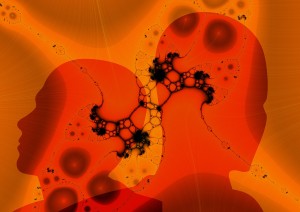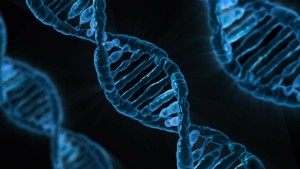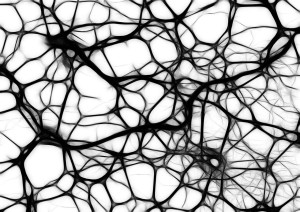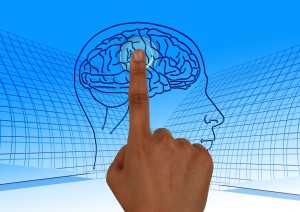- Calls to this hotline are currently being directed to Within Health or Eating Disorder Solutions
- Representatives are standing by 24/7 to help answer your questions
- All calls are confidential and HIPAA compliant
- There is no obligation or cost to call
- Eating Disorder Hope does not receive any commissions or fees dependent upon which provider you select
- Additional treatment providers are located on our directory or samhsa.gov
Research on Bulimia and Neurotransmitters

A Cycle of Binging and Purging
Bulimia is characterized by episodes of binging and purging. Binge episodes are described as eating a larger amount of food than what is typical given similar time periods and circumstances. Binge eating episodes are characterized by feeling out of control when eating and not stopping when full.
Often, immediately after binge episodes, patients feel disgust, shame, and guilt. In response to those feelings, they purge or try to remove the effects of binge eating. Purging behaviors include:
- Self-induced vomiting
- Over-exercising
- Restricting food
- Taking laxatives or diuretics
There are often psychiatric comorbidities present in BN as well, including mood disorders and substance abuse.1
The Causes of Bulimia Nervosa

Researchers have been looking at changes in neurotransmitters in the brains of people with BN. Neurotransmitters are pockets of chemicals that are released between two brain cells to help them communicate with each other.
The Role of Serotonin

The clinical efficacy of fluoxetine for BN led researchers to study the role of serotonin in BN. In one study, researchers matched 15 women with BN who were normal weight with 14 women without BN. A drug was administered to increase serotonin in the brain. The study results showed:
- Women with BN, when compared to healthy women, had a much smaller increase in serotonin
- The frequency of binge episodes in the 4 weeks prior to the study was inversely related to the amount of serotonin released
- This supported the hypothesis that serotonin may be lower in patients with BN.2
The Role of Tryptophan Depletion

When the women with a history of BN took the mixture without tryptophan, they experienced:
- Lowered mood
- Increased body image difficulties
- A feeling of loss of control when eating
Although this study was small, it demonstrated the possibility that diminished serotonin may contribute to the cognitive and mood disturbances associated with BN. This provides a mechanism of action to explain how dieting, which could deplete tryptophan and thus lower serotonin, could lead to the development of eating disorders in predisposed individuals.3
The Role of Other Neurotransmitters

It is often difficult to directly measure levels of neurotransmitters, so researchers look at the metabolite products of neurotransmitters in the spinal fluid for easier access. One small study looked at the levels of metabolites from dopamine, serotonin, and norepinephrine in 11 women with BN and 17 healthy controls. The results found that the women with BN had significantly lower spinal cord concentrations of the metabolites.
One hypothesis about the relationship to BN was that low serotonin levels in the brain may contribute to decreased satiety, or feeling full, and low levels of dopamine in the brain may contribute to abnormal pleasurable responses to food.4
There are likely many causes of BN, but investigating neurotransmitters appears promising. While the above studies are small, they indicate that abnormalities in neurotransmitters may contribute to developing and maintaining BN. More studies should be conducted.
About the author:

References
- American Psychiatric Association. Diagnostic and Statistical Manual of Mental Disorders Fifth Edition. 2015. 345-350.
- Jimerson, D., Wolfe, B., Metzger, E., Finkelstein, D., Cooper, .T, &Levine J. (1997). “Decreased Serotonin Function in Bulimia Nervosa. Arch of Gen Psych. 54(6), 529-534.
- Smith, K., Fairburn, C., &Cowen P. (1999). Symptomatic Relapse in Bulimia Nervosa Following Acute Tryptophan Depletion. JAMA Psychiatry. 56(2), 171-176.
- Jimerson, D., Lesem, M., Kaye, W., & Brewerton T. (1992). Low Serotonin and Dopamine Metabolite Concentrations in Cerebrospinal Fluid from Bulimic Patients with Frequent Binge Episodes. Arch Gen Psychiatry. 49(2). 132-138.
The opinions and views of our guest contributors are shared to provide a broad perspective of eating disorders. These are not necessarily the views of Eating Disorder Hope, but an effort to offer a discussion of various issues by different concerned individuals. We at Eating Disorder Hope understand that eating disorders result from a combination of environmental and genetic factors. If you or a loved one are suffering from an eating disorder, please know that there is hope for you, and seek immediate professional help.
Last Updated & Reviewed By: Jacquelyn Ekern, MS, LPC on August 28, 2015. Published on EatingDisorderHope.com
